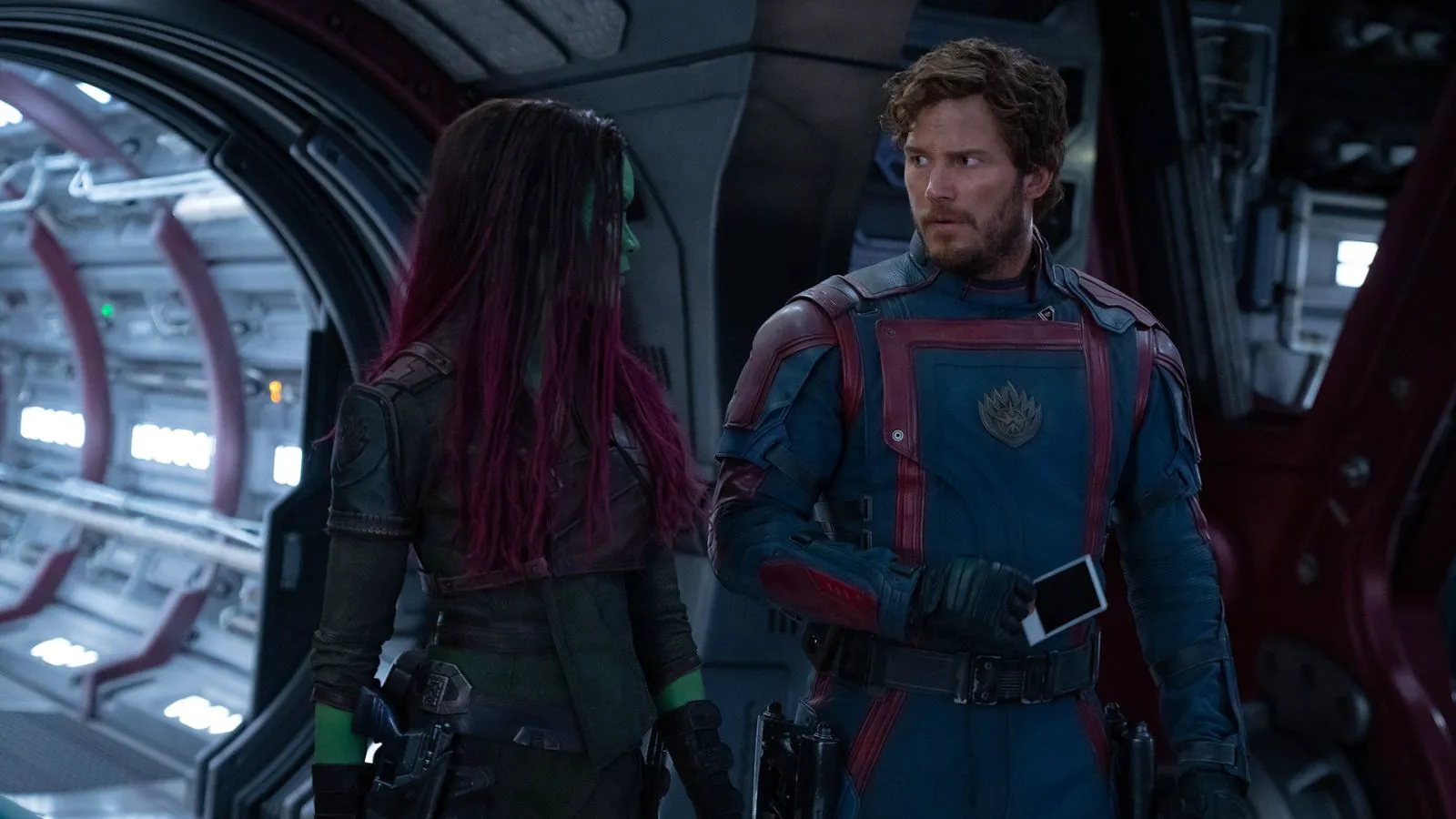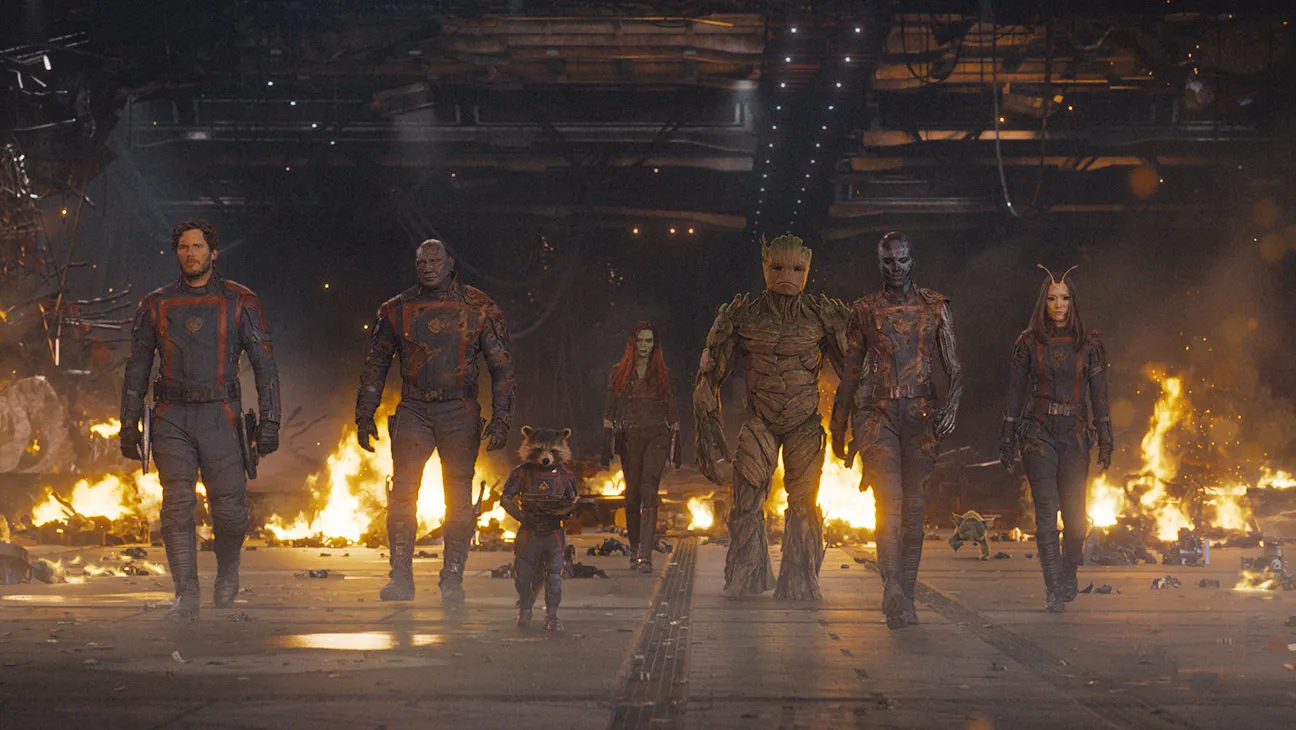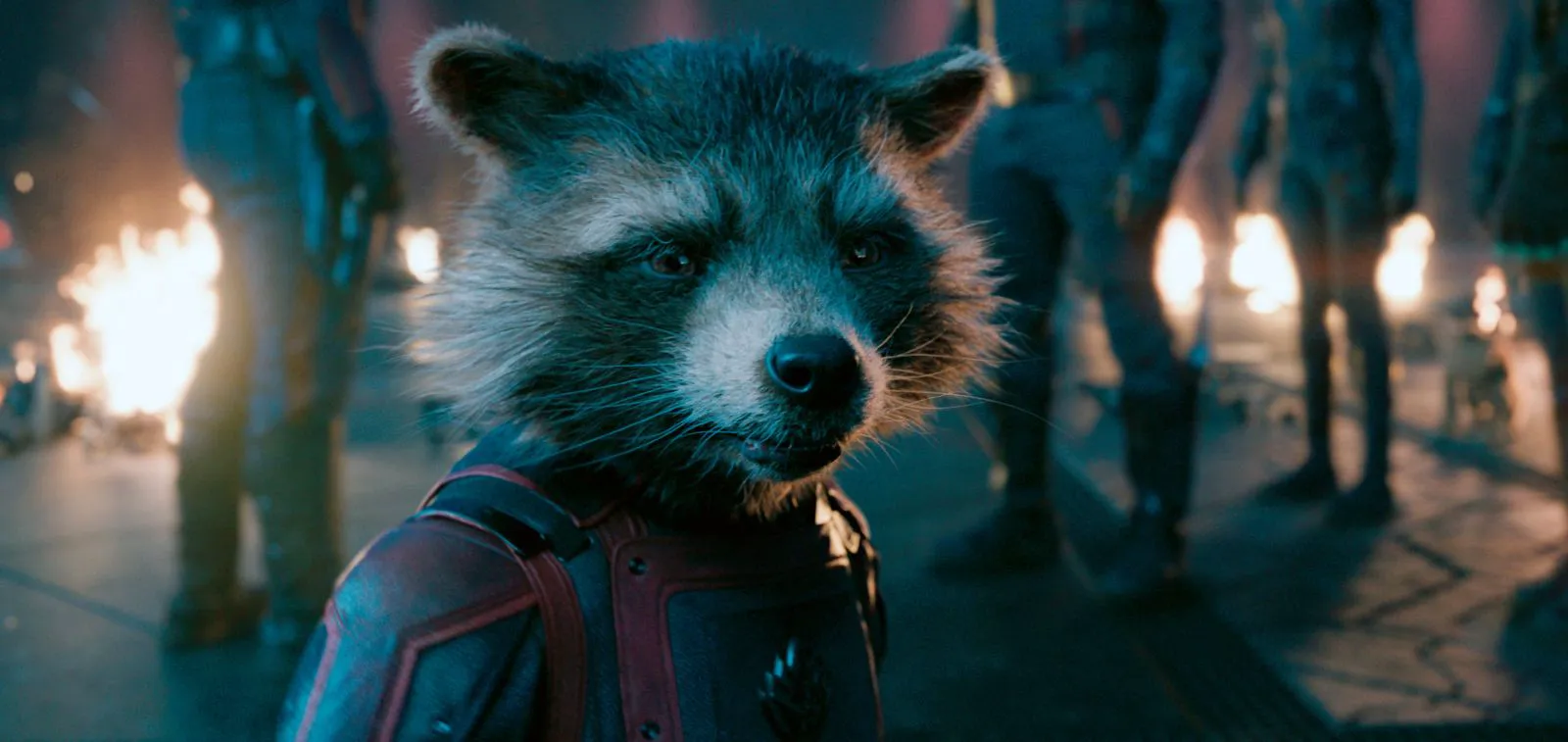The “Guardians of the Galaxy” trilogy is one of the many Hollywood blockbusters that have fallen into production hell, due not only to the coronavirus pandemic, but also to the scandalous dismissal of James Gunn as director of the film, the search for a replacement, and the director’s unexpected return home. However, while Disney was stubbornly trying to fit into the bonds of the new social agenda, Gunn was intercepted by Warner Bros. producers. Work on the new version of “Suicide Squad” and the series “Peacemaker” cut the director off from the Marvel cinematic universe for three whole years. To our general joy, Gunn still found time to return to his big superhero family for one final chord. After the director’s sudden appointment as head of DC Studios, there is no need to wait for other collaborations with Disney. In this regard, the new “Guardians of the Galaxy” is perceived as nothing more than a farewell film, stitched with threads of nostalgia for a time when everything around was a little simpler.

Chris Pratt as Peter Quill in a still from “Guardians of the Galaxy Vol. 3”
After the final showdown with Thanos, the Guardians managed to recover, get stronger, and even set up their own headquarters in a galaxy far, far away. A stable present, however, does not prevent Peter Quill (Chris Pratt) from returning to the past more and more often, pouring cheap alcohol into his heart broken by the death of Gamora (Zoe Saldana) and suffering in every possible way. The measured everyday life of the heroes, whose number has increased due to Yondu’s assistant Kraglin (Sean Gunn) and the Soviet dog Cosmo (Maria Bakalova), is disturbed by Adam Warlock (Will Poulter), a mercenary of a certain High Evolutionary (Chukwudi Iwuji). Many years ago, the Evolutionary created the genetically modified raccoon Rocket (Bradley Cooper) and now intends to return his creation at any cost.

Zoe Saldana as Gamora in a still from “Guardians of the Galaxy Vol. 3”
Unlike “Thor,” “Captain America,” or the same “Iron Man,” Marvel’s “Guardians of the Galaxy,” which started back in 2014, is a franchise in every sense of the word, with a unique directorial vision that somehow managed not to fade in the bowels of the soulless machine called Disney. The third part of “Guardians of the Galaxy,” like a new Lana Del Rey album, is pleasant and loved precisely in its predictability, recognizable atmosphere, created from elements of a space western, hooligan comedy, and old family cinema in the spirit of early Chris Columbus. Gunn does not change his favorite chips, but he does not play the same song twice, introducing new components into the plot from time to time. Like all final chapters, the “Guardians” trilogy is full of heartbreaking tragedy, and again the director turns to the most human in the audience, putting at stake not the fate of the whole world, as it was, for example, in “Avengers: Infinity War” or the new “Spider-Man,” but the life of a small angry raccoon Rocket. The secret of the origin of the fluffiest member of the team is revealed through dozens of frankly manipulative flashbacks about life in captivity and dreams of freedom, against which even the third “Toy Story” seems like a dry geography textbook.

A still from “Guardians of the Galaxy Vol. 3”
Behind the layers of the textbook story about the power of friendship and love, one can discern both a reference to the literary Dr. Frankenstein and a satire on modern eugenics or even a directorial manifesto of abolitionism. Without unnecessary moralizing, Gunn, who literally three years ago experienced the death of his beloved dog, reminds us that animals may not be intelligent, but they are definitely feeling creatures that have a fundamental right not to be human property, no matter how lofty the motives of their so-called owners may be.
If the first two parts of “Guardians of the Galaxy” lacked something, it was perhaps this - a powerful humanistic idea that could, if not build a new system of values in the viewer’s head, then at least inspire him to acts of truly cosmic kindness, based on respect and unconditional love for all living beings, whether it’s a raccoon, a walrus, or a dog. In the end, what Peter Quill can do is available to absolutely any person on the planet.